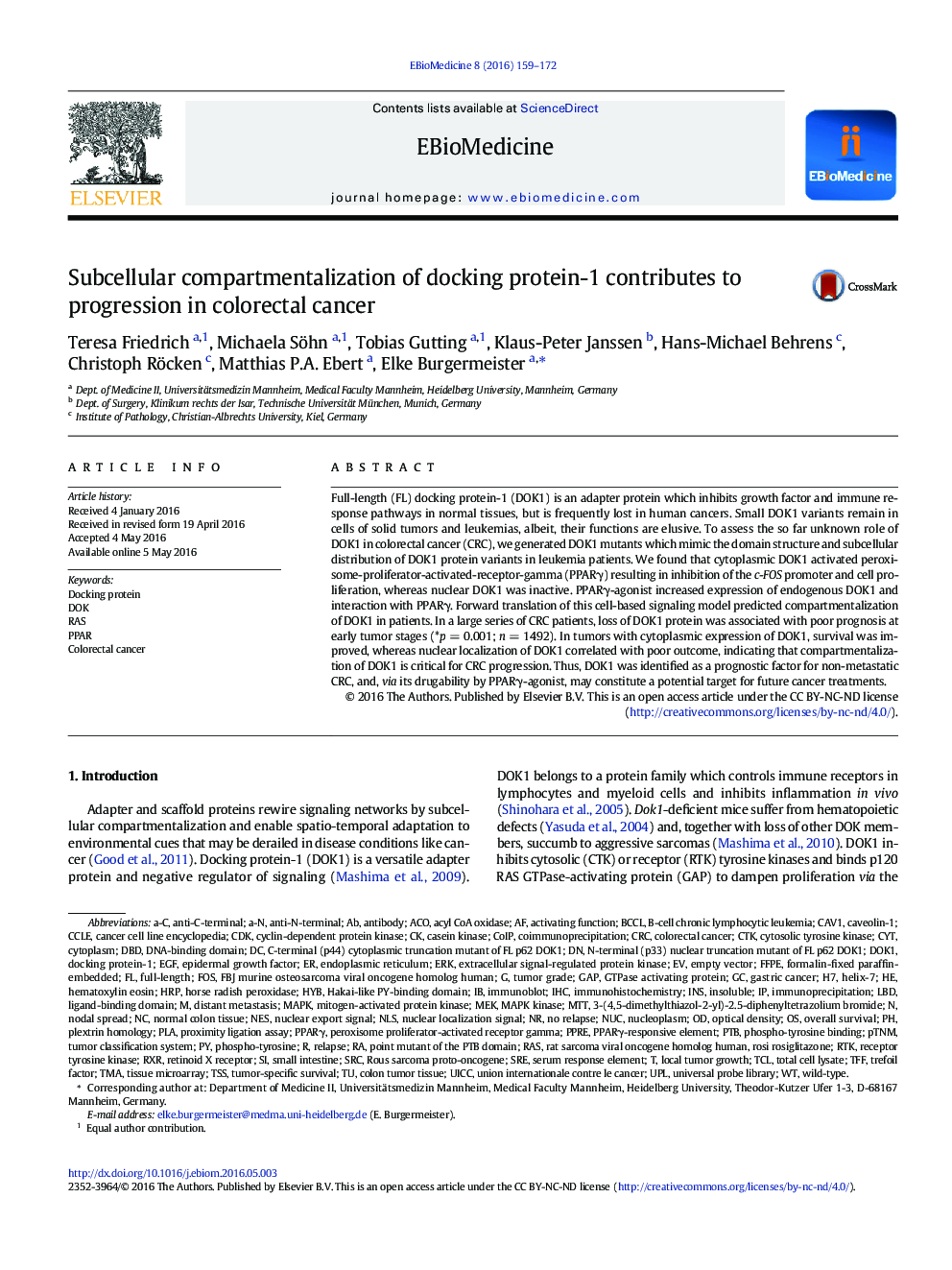| کد مقاله | کد نشریه | سال انتشار | مقاله انگلیسی | نسخه تمام متن |
|---|---|---|---|---|
| 2120761 | 1546891 | 2016 | 14 صفحه PDF | دانلود رایگان |

• Forward translation of a cell-based signaling model predicted clinical relevance for DOK1 in colorectal cancer (CRC).
• DOK1 is an independent prognostic factor in CRC patients, and its loss associated with poor survival.
• Cancer cell growth inhibition by DOK1 was increased (“drugable”) by PPARγ-agonist.Poor survival due to failure to respond to clinical therapies prevents effective treatment of cancer. Thus, there is a high medical need for novel drug targets and biomarkers. DOK1 blocks pro-cancer signaling in the healthy body, but is often lost in tumors. We show that colorectal cancer patients who are positive for DOK1 have a better survival outcome than patients who are negative. Anti-diabetic drugs up-regulated DOK1 and promoted its protective actions against tumor cells. Our study therefore suggests DOK1 as a marker for good prognosis and as a potential drug target for therapy of colorectal cancer.
Full-length (FL) docking protein-1 (DOK1) is an adapter protein which inhibits growth factor and immune response pathways in normal tissues, but is frequently lost in human cancers. Small DOK1 variants remain in cells of solid tumors and leukemias, albeit, their functions are elusive. To assess the so far unknown role of DOK1 in colorectal cancer (CRC), we generated DOK1 mutants which mimic the domain structure and subcellular distribution of DOK1 protein variants in leukemia patients. We found that cytoplasmic DOK1 activated peroxisome-proliferator-activated-receptor-gamma (PPARγ) resulting in inhibition of the c-FOS promoter and cell proliferation, whereas nuclear DOK1 was inactive. PPARγ-agonist increased expression of endogenous DOK1 and interaction with PPARγ. Forward translation of this cell-based signaling model predicted compartmentalization of DOK1 in patients. In a large series of CRC patients, loss of DOK1 protein was associated with poor prognosis at early tumor stages (*p = 0.001; n = 1492). In tumors with cytoplasmic expression of DOK1, survival was improved, whereas nuclear localization of DOK1 correlated with poor outcome, indicating that compartmentalization of DOK1 is critical for CRC progression. Thus, DOK1 was identified as a prognostic factor for non-metastatic CRC, and, via its drugability by PPARγ-agonist, may constitute a potential target for future cancer treatments.
Journal: EBioMedicine - Volume 8, June 2016, Pages 159–172